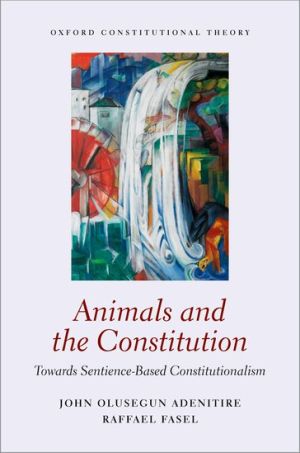
Constitutionalism—the idea that constitutions should limit and direct government power—has emerged as the global standard for the exercise of public authority. Its appeal lies in the simple idea that constitutions should secure governance in the interests of the governed. Yet, its popularity has obscured a significant problem: constitutions are centred on the interests of rational human beings, neglecting those who lack such capacities—most notably, non-human animals.
Animals and the Constitution breaks new ground by challenging the human-centredness of current constitutional theory and practices. It pioneers a more capacious account of constitutionalism—sentience-based constitutionalism— which is grounded in respect for the interests of all governed sentient beings. The book demonstrates how this account can be implemented in modern constitutions by rethinking four key principles of constitutionalism: constitutional rights, proportionality, the rule of law, and democracy. To illustrate how these principles can be reimagined to protect the interests of both humans and animals, the book draws on and examines numerous real-world examples, ranging from judicial recognitions of wild animals rights in Ecuador, to direct-democratic votes on primates rights in Switzerland, to entire proposed bills of rights for animals in Finland.
A unique combination of constitutional theory, animal ethics, and comparative constitutional law, this book offers a practical blueprint for constitutions to address the moral and legal status of sentient beings.